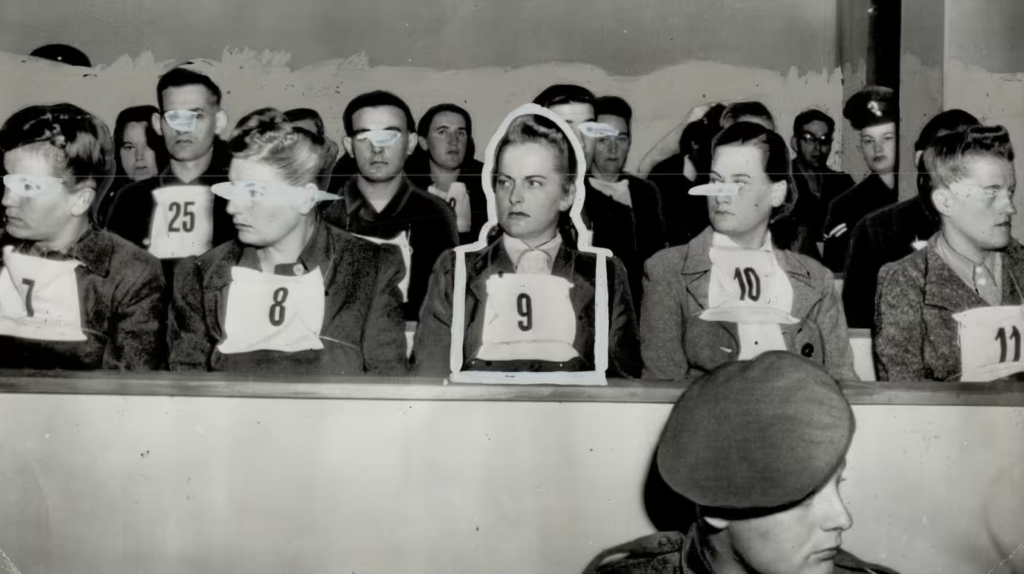
Title and Author
Title: Hitler’s People: The Faces of the Third Reich
Author: Richard J. Evans
Publication date: August 13, 2024
Category: History
“Hitler’s People: The Faces of the Third Reich” showcases the lives and choices of ordinary Germans under the oppression of the Nazi regime through a series of their stories. The author, through the perspectives of these individuals, explores morality and responsibility under totalitarian rule, revealing the complex psychological states of ordinary people in extreme circumstances. To explore these themes further, you can read the full review here.
Main Content Overview
Divided into chapters, each focusing on ordinary Germans from different social classes, from workers and peasants to intellectuals and soldiers, Heckel delves into the lifestyles and psychological journeys of these people under Nazi ideology through exhaustive historical research and a wealth of first-hand accounts. The people are made to make the difficult choice between conformity and resistance.
The characters
The characters include fanatics who actively supported Nazi policies. Some were ordinary people forced to conform under economic pressure. There were also intellectuals who resisted the Nazis internally. However, they couldn’t express their resistance openly. Through these diverse characterizations, the author shows the multifaceted and complex nature of Third Reich society.
In-depth Analysis
Waldemar Heckel’s portrayal of Nazi Germany is both a historical record and a profound reflection. He shows how totalitarianism penetrated and controlled society. Through detailed portrayals of ordinary Germans, he reveals human nature’s fragility and complexity under totalitarian rule. The moral responsibilities and choices of these individuals highlight totalitarianism’s deep impact on human nature. It also shows the collapse and reshaping of social structures in extreme circumstances.
The Theme of “Ordinary Evil”
A central theme of the book is “ordinary evil.” It shows how ordinary people joined Nazi atrocities through everyday conformity. Under extreme circumstances, they compromised and became part of the regime. Heckel explores their moral struggles in depth. He prompts readers to consider human vulnerability under totalitarian oppression. The book also examines the collapse and reshaping of social structures. It questions how individuals can maintain moral grounding. It asks how they can assume social responsibility under oppressive regimes.

Personal Feelings
Through rigorous research and excellent writing, Hitler’s People: The Faces of the Third Reich provides an insightful look at the impact of Nazi Germany’s totalitarianism on human nature, moral responsibility, and the fabric of society. More than a record of historical events, this book is a profound exploration of human nature and moral dilemmas. Through the stories of individuals, the author reveals how ordinary people were caught up in the flood of history under extreme circumstances. This focus on the fate of the individual makes the book very inspiring and makes one reflect on the question: can we maintain our moral grounding in the face of totalitarianism?
Best&Worst Parts
The most fascinating parts of the book are the detailed portrayals of the lives and thoughts of ordinary people. Through these portrayals, readers can better understand the complex emotions and decision-making processes of these people in the face of the Nazi regime. However, the book is rather brief on some of the historical background, which may be a bit confusing to readers who are not familiar with the history of the period. More background information and detailed descriptions of historical events might have been more helpful to readers in gaining a full understanding.
Suitable Readers
This book is for readers interested in the history of Nazi Germany, World War II, and human psychology. It is not only a good choice for history buffs, but also a must-read for those interested in how human nature behaves under extreme circumstances.
Summary & Review
Hitler’s People: The Faces of the Third Reich is an insightful work of history in which Waldemar Heckel takes the reader through the complexities of Nazi German society and the many facets of human nature under totalitarian rule through vivid portraits of ordinary Germans. Although parts of the book are slightly abbreviated, overall the book is a highly recommended masterpiece.
Rating: 4.5/5
Recommended
If you are interested in this book, the following books are recommended:
- 《Ordinary Men》by Christopher R. Browning: an exploration of how ordinary German policemen became mass murderers under the Nazis.
- 《The Third Reich in Power》 by Richard J. Evans: an exhaustive study of the social and political structure of Nazi Germany.
- 《They Thought They Were Free》by Milton Mayer: an exploration of ordinary people’s reactions and memories of Nazi rule in post-war Germany through interviews with them.




